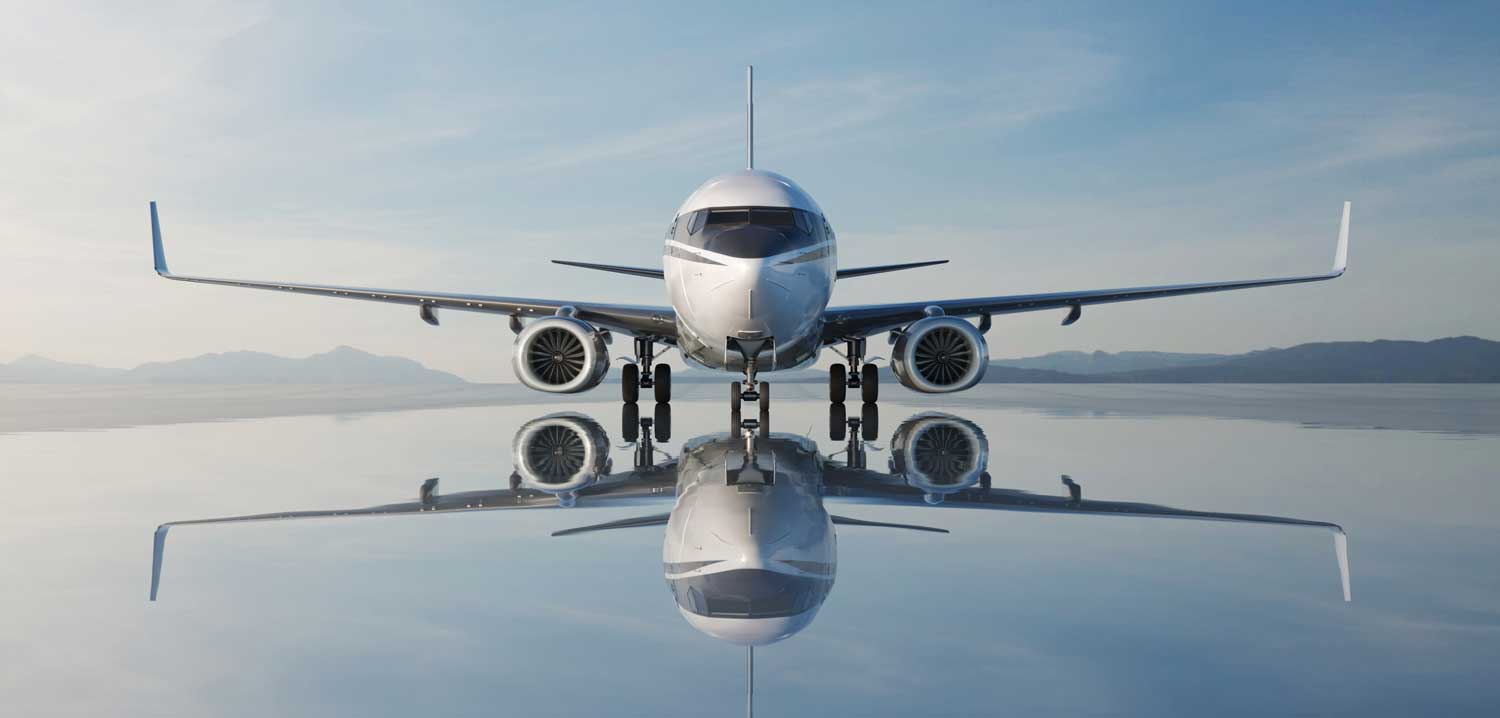Unveiling Jared Ailstock: The Journey of a Visionary Innovator

In the ever-evolving landscape of aviation, few names stand out like Jared Ailstock. A visionary innovator, Ailstock has captivated the industry with his forward-thinking approaches to some of the most pressing challenges facing aviation today. From sustainable aviation initiatives to advancements in aviation technology, his work embodies the essence of leadership and creativity required to navigate the future of flight.
Lerarn More from Jared Ailstock
As we delve into Ailstock's journey, we will explore his significant contributions to key areas such as aviation safety, air traffic management, and pilot training. His insights into aviation regulations and infrastructure have not only propelled him into the spotlight but have also inspired a new generation of aviation professionals. With a deep understanding of the aviation market and an unwavering commitment to enhancing the customer experience, Jared Ailstock represents the forefront of innovation in an industry that is constantly striving for improvement and sustainability.
Innovative Trends in Aviation
Lerarn More from Jared Ailstock
The aviation industry is currently experiencing a wave of innovation driven by advancements in technology and a growing emphasis on sustainability. Key aviation trends such as electric and hybrid propulsion systems are reshaping aircraft design, promising to reduce carbon emissions and enhance fuel efficiency. This shift is not only paving the way for greener alternatives but also influencing airline operations and the overall environmental impact of air travel. As more companies invest in sustainable aviation, the focus is shifting towards creating an eco-friendly future for the industry.
Aviation technology has become intricately linked with safety improvements, particularly through enhanced air traffic management systems. Innovative software solutions are enabling real-time data sharing and communication among various stakeholders, leading to greater situational awareness and more efficient routing of aircraft. These developments are crucial for improving air travel safety and minimizing delays. As the demand for air travel continues to rise, the integration of advanced technologies will play a pivotal role in ensuring safe and reliable operations.
Furthermore, pilot training is evolving alongside emerging trends in aviation. Utilizing virtual reality and simulation technologies, training programs are becoming more immersive and effective, ensuring that future pilots are well-prepared for the challenges of modern aviation. This innovative approach not only enhances learning outcomes but also addresses the need for skilled professionals in a rapidly changing aviation landscape. By embracing these advancements, the industry is positioning itself to meet future demands while upholding the highest standards of safety and operational excellence.
Sustainable Future of Air Travel
In an era marked by a growing awareness of environmental issues, the aviation industry is undergoing a transformative shift towards sustainability. Jared Ailstock has emerged as a key figure in this movement, advocating for innovative solutions that minimize the carbon footprint of air travel. By integrating advanced technologies and embracing renewable energy sources, Ailstock envisions a future where aviation operations result in significantly lower emissions while maintaining efficiency and safety. His commitment to sustainability reflects a broader trend within the aviation sector, where companies are prioritizing eco-friendly practices to meet the demands of environmentally conscious travelers and regulators.
Further exploring sustainable aviation practices, Ailstock emphasizes the importance of sustainable aviation fuels (SAFs). These alternative fuels represent a major breakthrough in reducing aviation's environmental impact, as they can lower carbon emissions by up to 80 percent compared to traditional jet fuels. Through partnerships with researchers and industry stakeholders, Ailstock is spearheading initiatives aimed at increasing the production and usage of SAFs. His insights into aviation technology and innovation play a pivotal role in facilitating the transition to these greener alternatives, ultimately reshaping how airlines operate and engage with their customers.
Moreover, Ailstock's vision extends to enhancing the overall customer experience in sustainable air travel. He believes that educating travelers about the environmental benefits of their choices can help cultivate a sense of responsibility and engagement. Ailstock is an advocate for transparent communication between airlines and passengers regarding the sustainability efforts being implemented. By providing insights into the environmental impact of different routes and flight options, he aims to empower travelers to make informed decisions that contribute to the broader goal of sustainable aviation. Through his leadership, Ailstock is not only redefining the industry standards of today but also paving the way for a more sustainable future in air travel.
Aviation Safety and Technology Advances
Lerarn More from Jared Ailstock

In the ever-evolving landscape of aviation, safety remains a paramount concern, and advancements in technology play a critical role in enhancing safety protocols. Innovations such as real-time data analytics and predictive modeling have transformed how airlines manage flight safety. By leveraging big data, operators can now proactively identify potential hazards, making informed decisions that significantly reduce the chances of incidents. Moreover, the integration of artificial intelligence and machine learning algorithms in monitoring systems ensures that safety measures are continuously refined and improved.
Furthermore, advancements in aircraft design and materials contribute to both safety and performance. The development of more resilient materials and aerodynamically efficient designs not only enhances aircraft durability but also minimizes the risk of technical failures. Enhanced cockpit technologies, such as advanced avionics systems and automated safety features, empower pilots with better situational awareness and decision-making tools, thereby significantly bolstering flight safety. Such innovations underscore the aviation industry's commitment to maintaining the highest safety standards while pursuing operational efficiency.
Additionally, the role of stringent aviation regulations in conjunction with technological progress cannot be overlooked. Regulatory bodies are increasingly embracing new technologies that promise to enhance safety protocols and streamline compliance processes. As aviation regulations evolve, they aim to harness innovations such as UAV technology for surveillance and monitoring, thereby ensuring optimal safety across airspace. Industry stakeholders are collaborating to foster an environment where aviation innovation leads to improved safety outcomes, ultimately shaping a more secure future for aviation worldwide.
